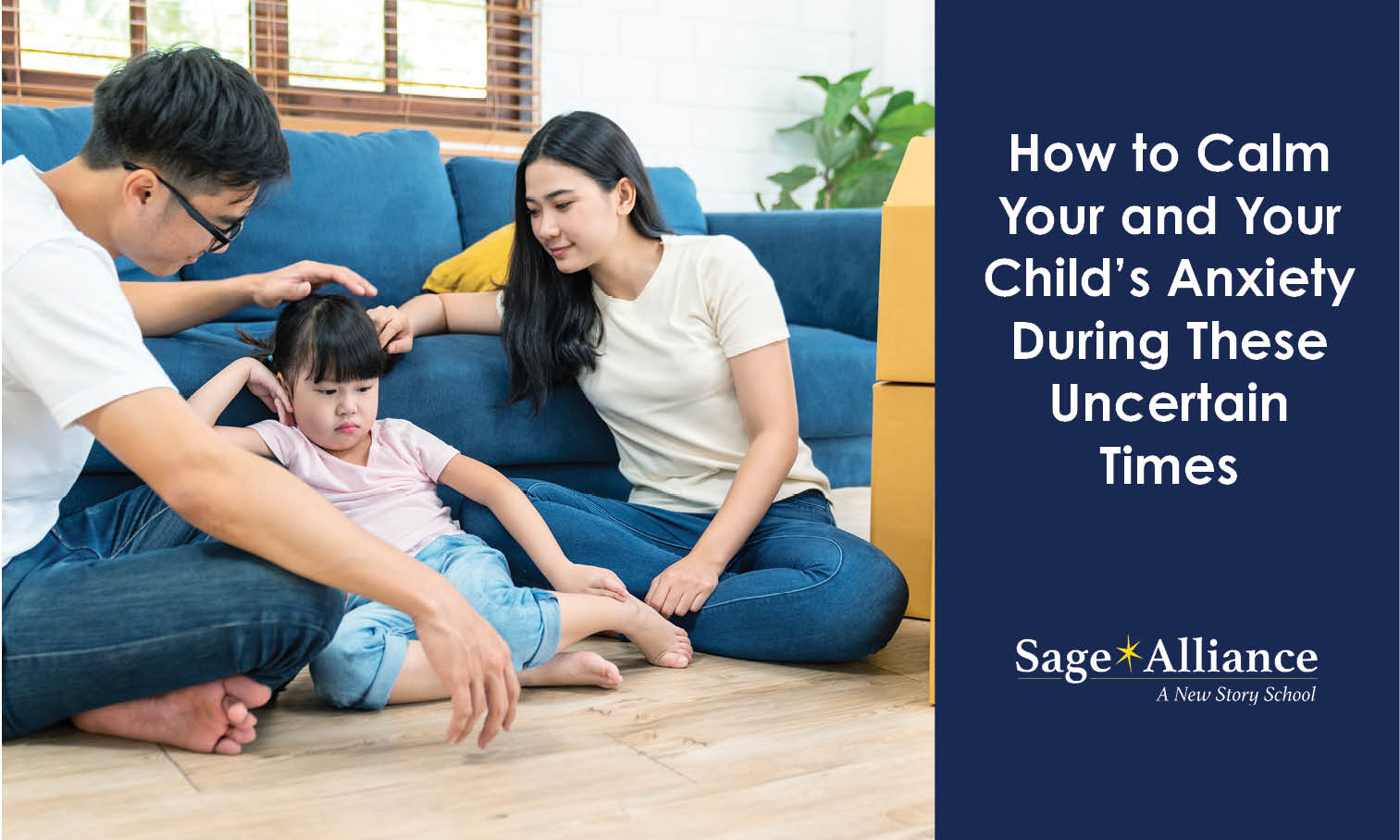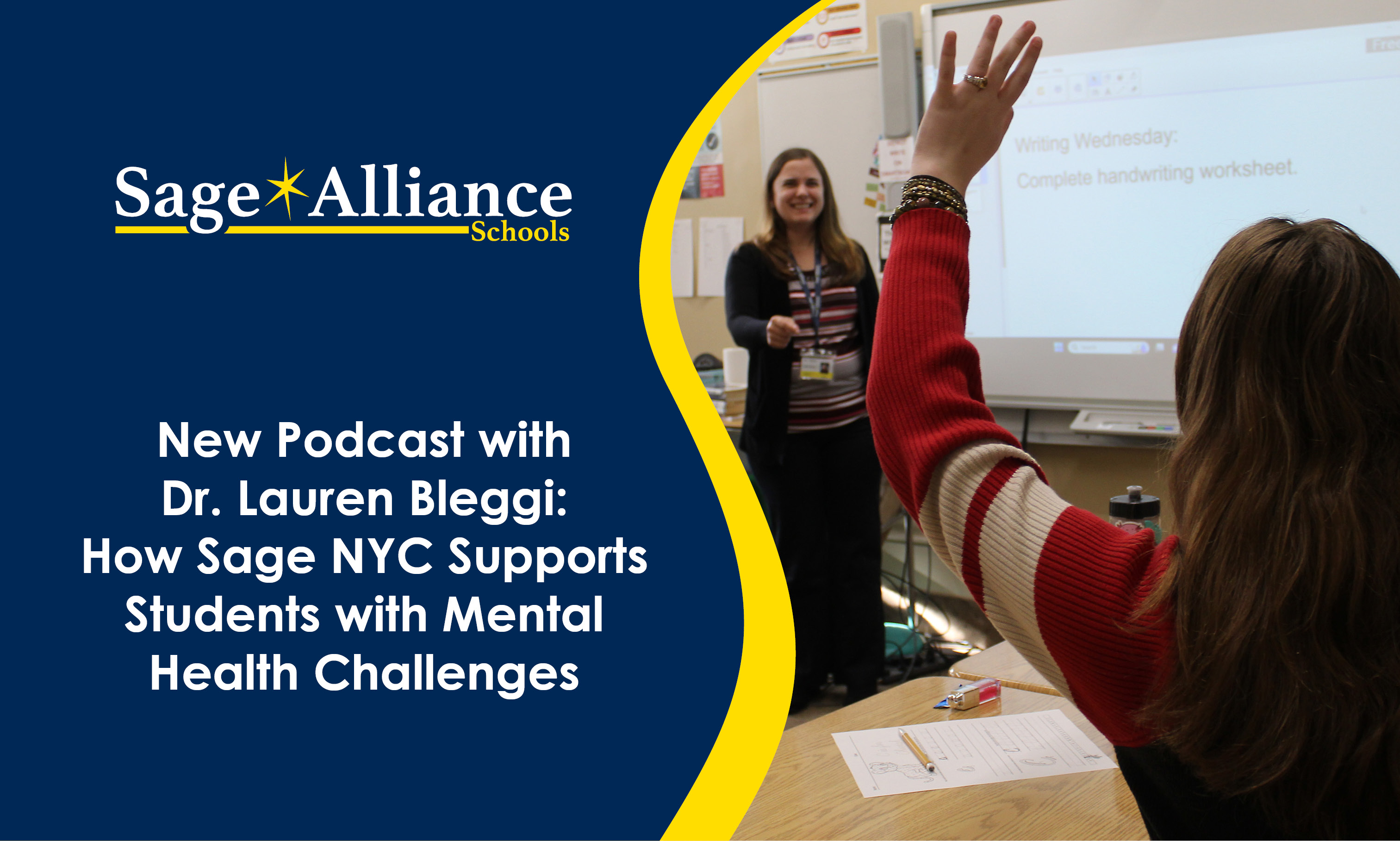How to Calm Your and Your Child’s Anxiety During These Uncertain Times
Posted: April 15, 2020 | Written By: | Category: Coping

Anxiety levels are high for children and adults during this time of COVID-19. Those who may not have experienced heightened levels of anxiety before are now afraid to leave their homes, go to grocery stores, and do many other daily tasks that were once considered normal and safe. During this time of uncertainty, it’s important to remember that it is normal for you and your children to feel anxiety, but it’s important to address these feelings, find ways to cope with them, and know when to ask for help. If your child is struggling with heightened levels of anxiety, below are some ways to help them cope with this stress.
Feel Your Feelings and Talk About Them
Will I have a job in the upcoming month? What will school be like? Is my child behind 6 months now? Will I ever have another snow day? These are questions that may be playing over and over in your mind as well as your child’s mind and they may be causing stress and anxiety. These are valid concerns and it is normal to be stressed and anxious because of it.
It is important that both you and your children feel your feelings and talk about them. Do not try to bottle up your feelings or avoid them, let yourself fully feel them. Once you understand your feelings and can put them into words, make sure you talk about them with someone. For your child, they may come to you to express their feelings. Make sure you are being patient and listening to them and not jumping immediately to a solution. It’s important to not belittle their feelings, but also do not amplify them. The message you should send to them is, “I know you’re scared, and that’s okay. I am here for you and we will get through this together.” Parents may want to talk to a spouse, relative, or many seek out a mental health professional to express their feelings.
Set Structure and Expectations
Creating a new daily routine can help both parents and their children find a new sense of “normal.” Although your children do not have to wake up at the same time they used to, they should know you expect them to not sleep all day and to stay productive. It is important that your child is getting enough sleep to deal with stress and anxiety, but it’s also important that they are sleeping at night and not during the day to keep a normal routine. Be patient and supportive with your children, but also make sure they know that certain things are still expected from them during the day such as homework, going outside, chores, etc. When setting expectations, focus on the behaviors you want to see and phrase things in a positive way when addressing behavioral issues.
Control What You Can Control
Understand that there are more things out of your control during this time and focus on what you can control, which includes:
-
Regularly Washing Your Hands
-
Keeping the Surfaces of Your Home Disinfected
-
Avoiding Large Groups of People
-
Not Touching Your Face
-
Wearing a Mask in Public
-
Staying Home when Possible
If you and your family focus on what you both can control during this time, it may help reduce your levels of anxiety.
Practice Deep Breathing, Meditation, and Self-Care
Make sure you and your child are practicing self-care during this time. Self-care can include staying physically active, eating healthy, staying connected with others, taking mental breaks, and staying informed, but avoiding too much exposure to news. When you or your child are feeling heightened levels of anxiety, try deep breathing or meditation to help calm yourself down.
When you feel anxiety and stress, your heart rate increases, your muscles tense, and your breathing becomes shallower. When you are calm, your body does the opposite. Deep breathing exercises can help get your body out of “fight or flight” mode and back into “rest and digest” mode. Also, meditation can help you practice mindfulness which is known to reduce anxiety levels.
Remember that each family’s situation is unique, and you will need to find what works for you and your family. It is normal and okay for your family to feel anxiety and stress during this time, but make sure you are managing your feelings and emotions in a helpful and productive manner. If your family needs help with their mental health during this time, visit the National Alliance on Mental Health’s website for the New Jersey mental health hotline numbers.
Learn about our Sage Certified Clinicians™ who work with our students struggling with anxiety and depression and provide them with the tools they need to succeed despite their obstacles.
Want to be notified of new articles and resources from Sage Alliance? Click here to submit your email and opt into our newsletter.









